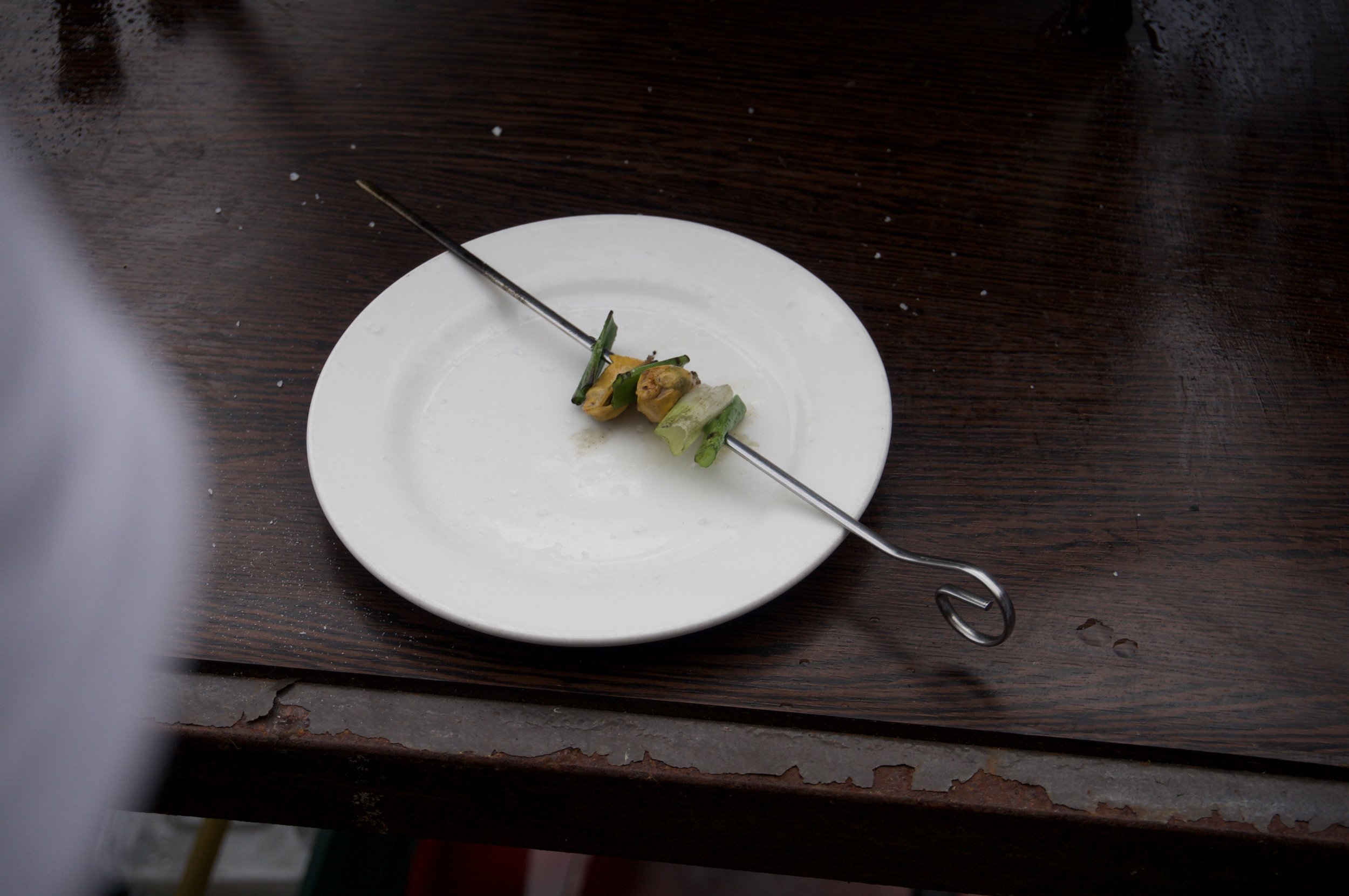
WESTPORT
The event in Westport was an accumulation of my research as part of the project Fulacht. The event was hosted in Westport, and I saw myself presenting a tasting menu that told the story of cattle farming in Ireland and our foraging along the West. Each dish was presented alongside a narrative which gave context to the historical importance of what we were eating and how, with my culinary and creative practice, we have used our cooking and farming techniques to inspire each dish.



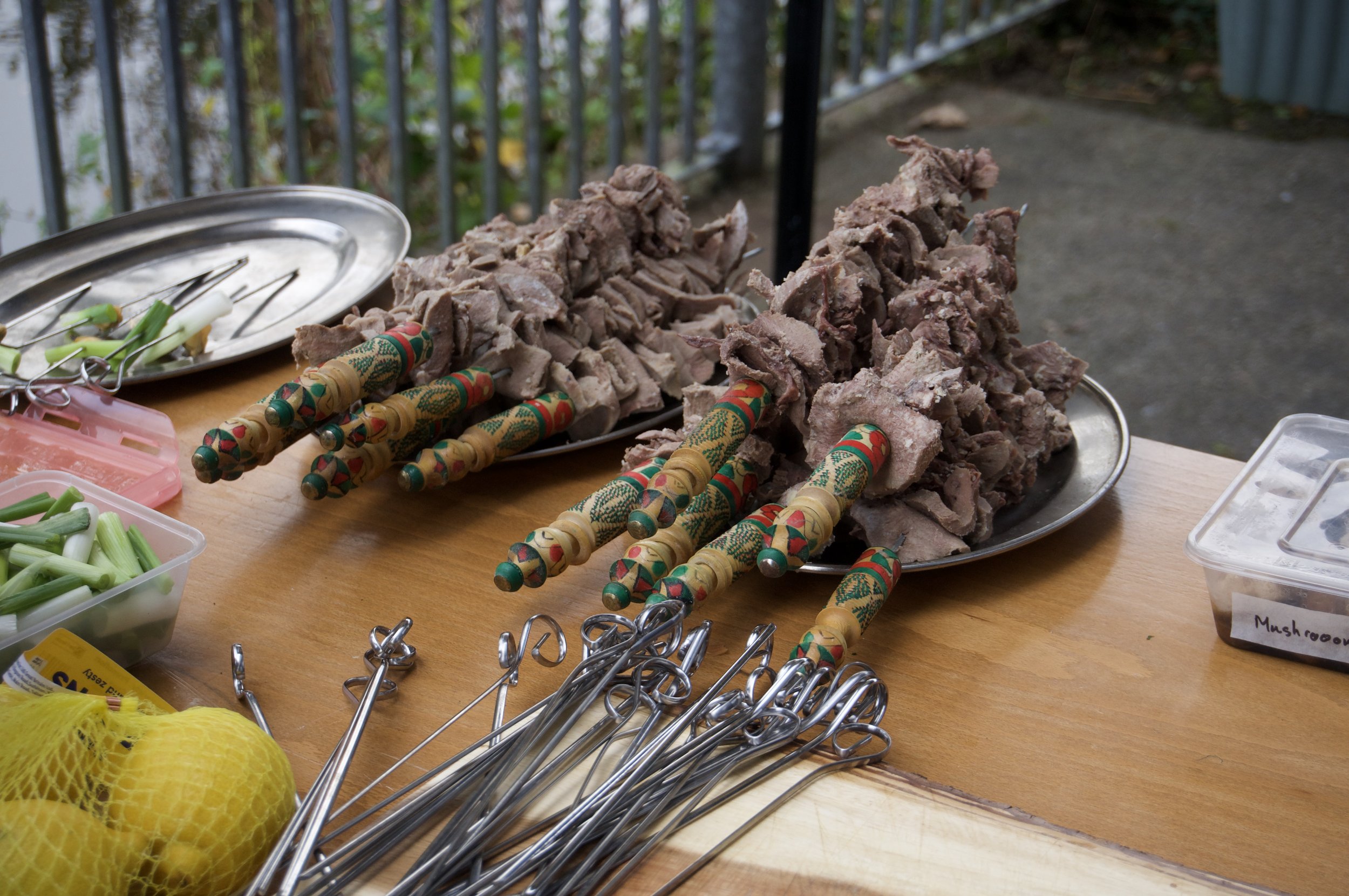
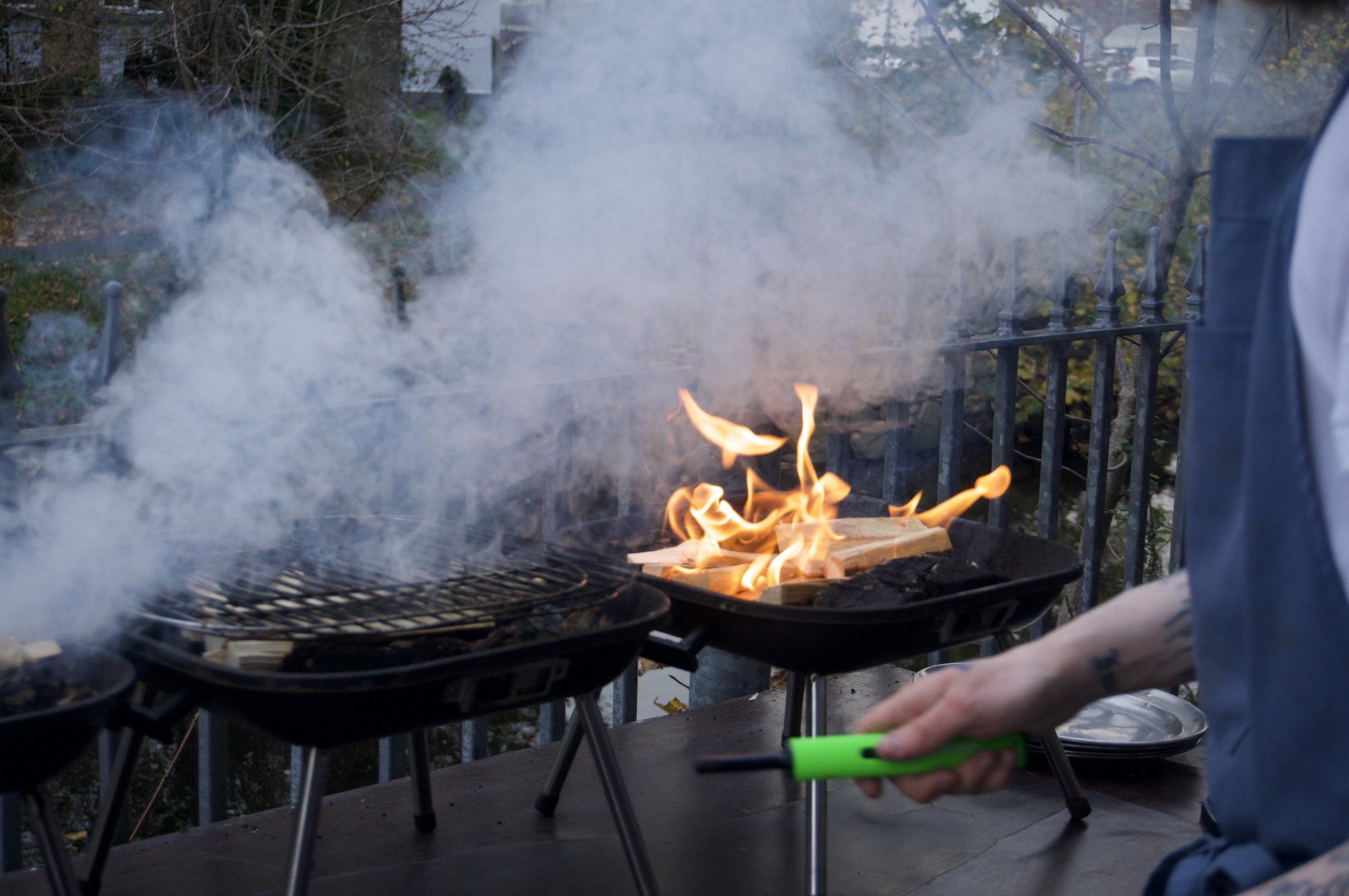
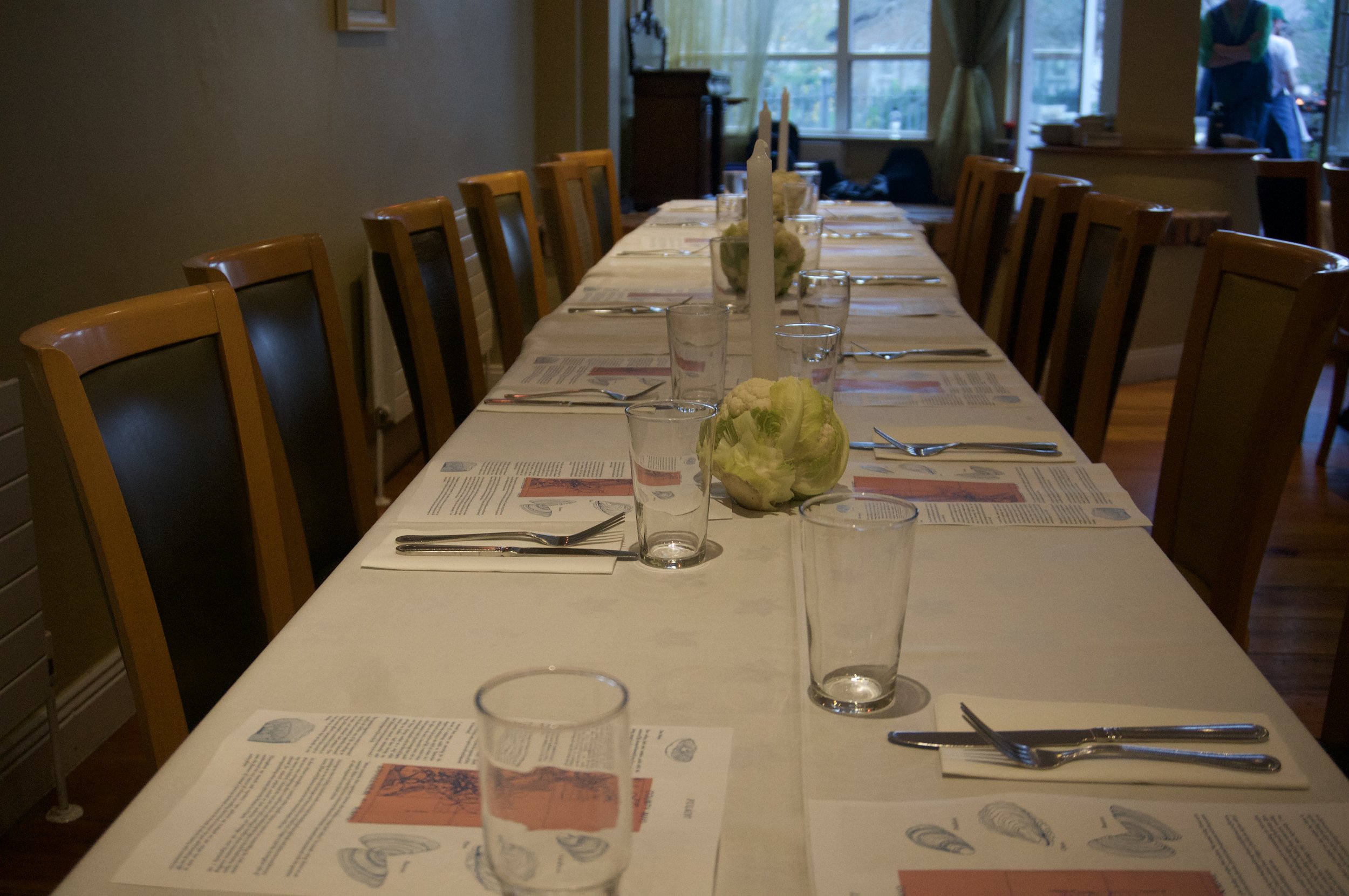
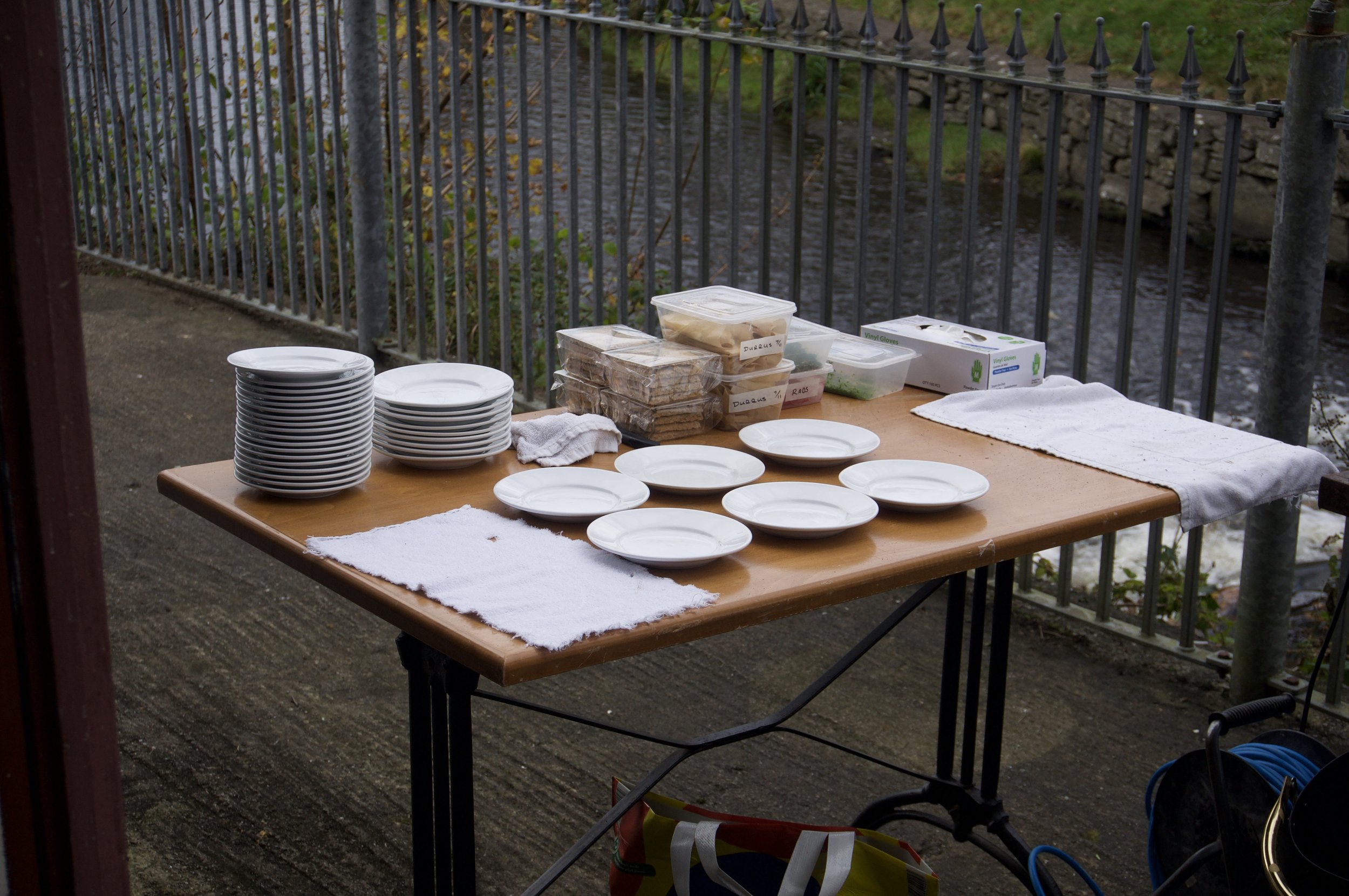
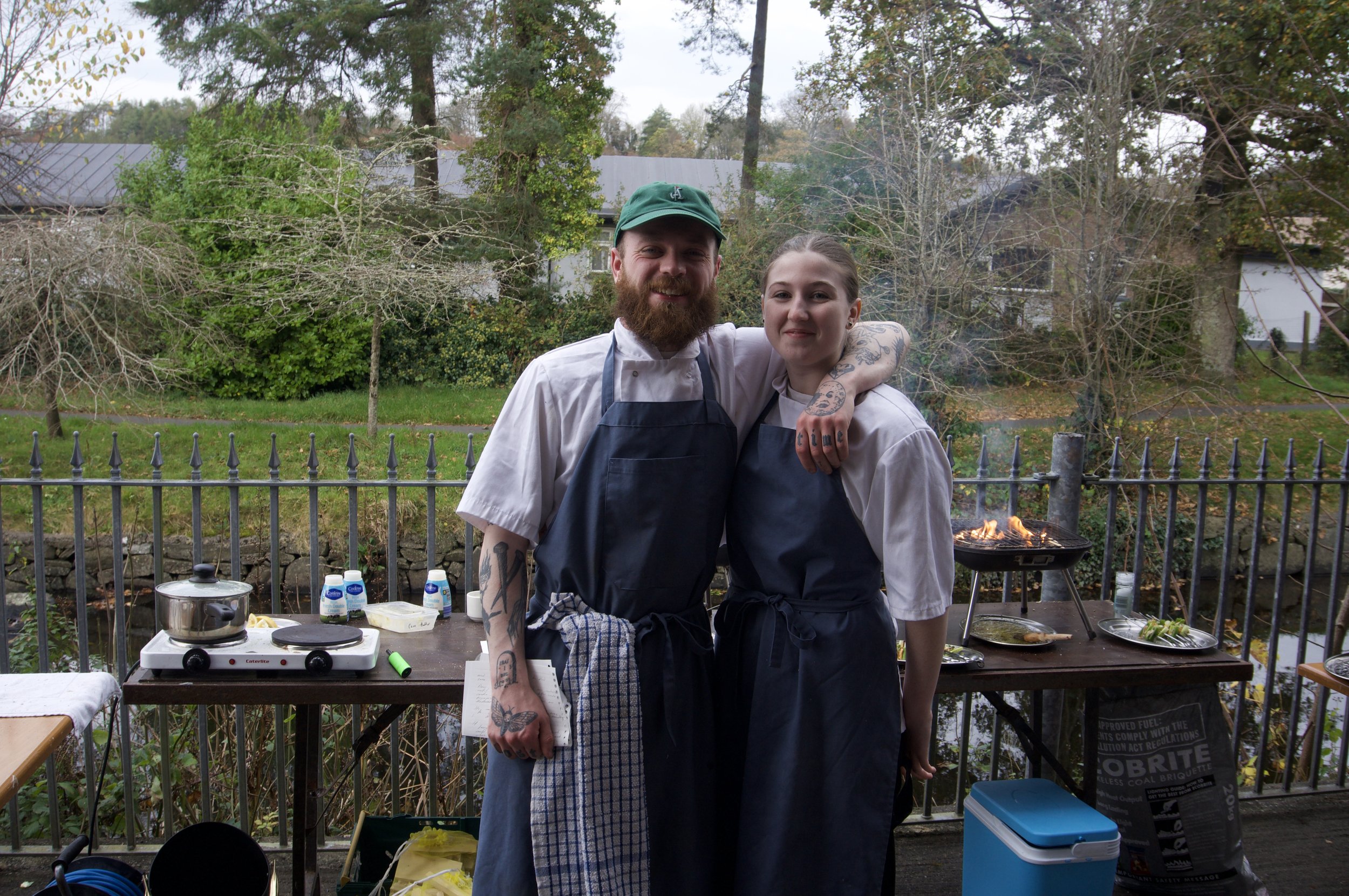
Each dish was cooked over a mix of 2/3 wood and 1/3 turf. Using turf added a smoky and complex flavour distinct to Irish food heritage. My partner on these projects is my sibling, Rebekah McCarthy, who, like me, is a creative person interested in science and works with food. Alongside the food, Tommy Boland from the University College Dublin was invited to speak on farming.
Tommy Boland is from a mixed farming background in the South-East of Ireland. He is currently a ruminant nutrition and sheep production professor at University College Dublin, Ireland. He has recently held roles of Associate Dean of Research, Innovation and Impact and President of the Agricultural Science Association. He is Secretary of the Livestock Farming Systems Commission of the European Association of Animal Production. He is also a member of the EU-Agri DG Methane Expert working group. He is involved in the Long Term Grazing Platform at UCD Lyons Farm, a Global Farm Platform member organisation. He sits on numerous national and European stakeholder and advisory bodies. His research focuses on enhancing the sustainability of ruminant livestock production, mainly pasture-based production systems, with a particular interest in multispecies swards, enteric methane mitigation, reducing nitrogen excretion and alternative forages, fresh and conserved. He has published over 150 peer-reviewed articles, 100s of industry and popular press articles, and contributed to over 250 conference communications and numerous industry and invited talks. He married Dee, had four children, and still has a part-time sheep farm.
This event aimed to look at our eating habits and not suggest giving up meat. However, to acknowledge that we must work with our farming communities, the fishermen, butchers, and fruit and vegetable sellers to create a more connected food chain, our impact on the climate could be diminished by a more sustainable economic environment where independent farmers are supported. Where re-wilding and conscious cuisine are celebrated.
As this event marked the closure of Fulacht as a research project, as I set my sights on more community-oriented work, I wanted to engage with the audience for inspiration. Following an open discussion about food and our relationship to our ingredients, I asked the audience to tell me how they would like to see a more conscious cuisine take place in their community. The answers given alongside my residency in Paris would fuel my research in 2024 and development in 2025 for the project titled "Caring Culture."





